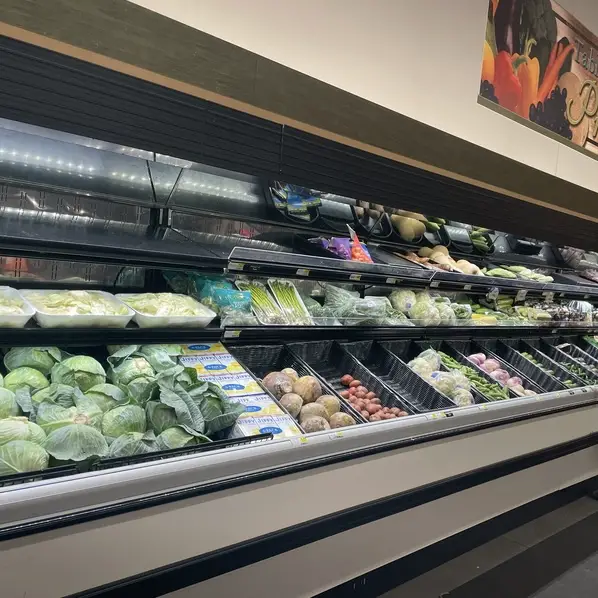Shopping for fresh produce shouldn’t be a guessing game, but honestly, some grocery stores make it feel that way. I’ve been testing different chains for months now, and the differences are pretty shocking. Some places consistently deliver crisp lettuce and ripe tomatoes, while others leave you with wilted greens that barely last two days.
Farmers markets win every single time
There’s basically no competition when it comes to farmers markets. The produce is usually harvested within a day or two. And that makes all the difference in flavor and shelf life. I mean, you’re talking directly to the people who grew your food – no mystery about where it came from or how long it’s been sitting around. Sure, prices might be slightly higher, but the quality is totally worth it.
Aldi surprises everyone with quality
Aldi doesn’t look fancy from the outside. But their produce section is consistently impressive, and I’ve noticed they source from the same suppliers as higher-end stores. Their supply chain moves super fast, so produce doesn’t sit around getting stale. The rotating weekly specials make it easy to stock up on seasonal items at pretty unbeatable prices. After trying their strawberries and spinach multiple times, they’ve become my go-to for budget-friendly fresh food.
And the turnover rate is incredible – everything moves quickly through their system. Why don’t more people know about this? Their fruits and vegetables are crisp, colorful, and way cheaper than most competitors.
Costco works if you’ve got a big family
If your family goes through fruit like water, Costco makes sense. The bulk sizes work for large households, and honestly, the quality is surprisingly good for berries, avocados, and leafy greens. Because they have such high turnover, produce doesn’t sit on shelves very long. But here’s the thing – you need a solid plan to use everything before it spoils. Buying ten pounds of bananas sounds smart until they all ripen at once.
Dollar stores aren’t worth your time
Skip the produce aisle here. Total disaster. The fruits and vegetables are often older, shipped long distances, and stored in less-than-ideal conditions. Every time I’ve bought produce at dollar stores, it spoils within days. You’ll notice quicker spoilage, bruising, and basically no flavor. Freshness just isn’t their strong suit, so save your dollar for something that won’t turn brown overnight.
Gas stations are obviously terrible
Those apples and bananas by the register aren’t worth it. They’re overpriced and days past their prime. I mean, grabbing a snack on a road trip is fine, but don’t rely on convenience stores for weekly fruits and veggies. Most of their produce sits for long periods and lacks the freshness you’d get elsewhere. Does anyone actually expect good produce from a gas station anyway?
Trader Joe’s hits the sweet spot
Trader Joe’s is known for unique snacks, but their produce section deserves way more credit. The selection isn’t massive, but what they carry is almost always high quality and fairly priced. Their pre-washed greens and bagged veggies are super convenient for busy weeknights. Plus, they source many items directly, which means fewer middlemen and better freshness overall.
The last time I shopped there, their seasonal fruits were at perfect ripeness. And shipments arrive throughout the day, so associates can replenish the fresh selection every morning. Going early definitely helps you get the best picks.
Big box stores miss the mark
Walmart and Target are great for deals on packaged foods. But their produce is hit or miss – and mostly miss. The fruits and vegetables travel long distances and spend too much time in transit, which shows in the final product. You’ll get fruits that ripen unevenly and veggies that wilt within days of purchase. If you absolutely have to shop here, stick to hardy items like potatoes and onions that can handle longer shelf life.
Honestly, I’ve had better luck with their packaged goods than anything fresh. The produce just doesn’t maintain quality during their lengthy supply chain process.
Local co-ops are hidden gems
Smaller local grocers and produce co-ops offer incredible value that most people miss. They often partner with nearby farms, delivering ultra-fresh produce at pretty fair prices. You’ll find unique, seasonal items you’d never see at chain stores – like heirloom tomatoes, freshly picked herbs, or specialty varieties of common vegetables. After trying several co-ops in different areas, the quality consistently beats larger chains.
Supporting small farms helps your local economy thrive too. And the staff usually knows where everything comes from, so you can ask specific questions about growing methods or harvest dates. How often can you do that at a regular supermarket?
Shopping strategy matters most
Where you shop makes just as much difference as what you buy. For the freshest, longest-lasting produce, prioritize local markets, Aldi, and Costco if you need bulk quantities. Trader Joe’s works as solid middle ground when convenience is key. But skip dollar stores and gas stations completely – your taste buds and wallet will thank you later.

